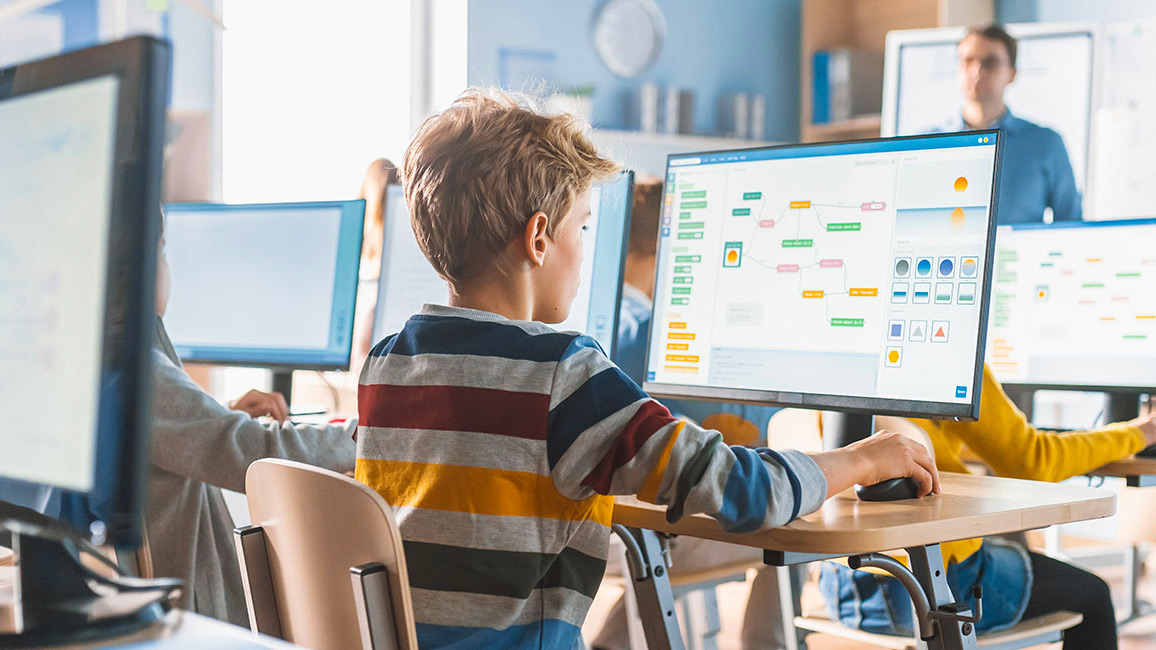COO Stephanie Malham tells us what is needed to make a good licensed product
For much of the games industry's history, tie-in products were a common sight.
Often there would be titles launching based on a particular film or television series, designed to capitalise on the attention, hype and popularity surrounding whatever they were based on. Despite being exceptionally regular for a period, these games were not exactly known for their high quality.
While none of them were as bad as the infamous Atari ET game that contributed to the 1983 video games market crash, they were often released to average reviews and weren’t exactly the biggest sellers on the market. In the last decade, licensed projects have definitely reduced in frequency.
So it's perhaps surprising to see a company focusing entirely on these kinds of titles in the present day. Founded back in 2016 by industry veteran Terry Malham Sr, Outright Games is known for its licensed products based on kids' IPs such as Paw Patrol, Jumanji, My Little Pony and Ben 10.
"We saw that there was a huge gap in the market for quality, officially-licensed video games for kids," the company's chief operating officer Stephanie Malham tells us.
"We started Outright Games by addressing this need as our primary goal. As a family-founded business, our focus continues to be making the best games possible that are the most fun for other families to enjoy."

It's not enough to simply identify a gap in the market and try to fill it, as Outright has done with licensed kids' games. There needs to be a certain level of quality of products so that parents can feel confident in spending money on a company's titles.
"When we started, there had been very few companies in the games industry to give kids video games the care and attention they deserve," Malham explains. "Parents have a tough job of ensuring that the entertainment their children consume is appropriate for their age bracket, so it is vital entertainment providers make it as easy as possible for them.
“By focusing on this underserved bracket, we can ensure that Outright’s name acts as a stamp of quality that parents can go to when selecting games for their kids. Ultimately, it’s in Outright’s DNA; we’re a family-led company with an interest in making family-friendly games. It goes hand-in-hand to work with the biggest names in children’s entertainment and deliver on that passion."
Not only was there an opportunity to address a neglected market, but Outright also felt there was an opening to do more with one of the core components of a lot of media aimed at kids: the characters.
"Characters really are the lifeblood of the industry," Malham explains. "There are so many fantastic IPs across TV and film which families know and love, but we felt there was an opportunity for these beloved characters and properties to create great games. Ultimately with the huge demand for kids' IP in the gaming space, we have the experience in the sector to ensure that licensors can enter the market in a controlled and risk-free manner.
“Fast-forward to now, and we have carved our place out as the leading publisher to take these beloved franchises to the fastest-growing entertainment industry there is. Above this, the company’s passion always was around making games the whole family can play together and have fun together, so it’s always made sense to us to create those games around beloved characters and franchises."

As we said at the start of this article, licensed tie-in games have vastly reduced in number over the last decade. But this is something that does not concern Outright.
"There is a huge opportunity in the sector given the volume and popularity of kids’ IP, but it needs to be tackled in the right way," Malham says.
"Firstly, partners need to take good care of the reputation of the brand they are operating with. If the product doesn’t meet fans’ expectations, then customers are less likely to engage with the property in future. The reason we have been able to carve out our niche is because we have taken a great deal of care when it comes to sourcing our developers, and ensuring the concepts of our titles match with the IP, and are popular with players. Our experience and track record in the space means brands can be sure their IP will be well looked after."
The previous glut of licensed titles was widely regarded as cash grabs that were quickly and often poorly developed, a cynical attempt to capitalise on the hype around intellectual property. The manner in which Outright goes about making tie-in products is worlds apart from that older process.
"We know that to make an experience we are proud of, there needs to be a strong and healthy relationship with the licence holders we work with to make games based on their properties," Malham explains.
"The key is to capture the essence of what makes the show unique and represent it within the game. A great example of this is our recent title, My Friend Peppa Pig, in which it genuinely feels like you are playing and interacting with an episode of the show. To feel immersion on this level is what kids love, and it is what we aim to offer whenever we produce a game.
“Licensed games need to have the right amount of time and attention given to them, which is a huge priority for us as well as pairing the IPs with the right developers. For our licensors, they put a lot of trust in us to ensure that the products we make will delight their current fans, so delivering on this time and time again is how we grow and establish ourselves as the go-to publisher in the space."
Of course, it's not as simple as just working closely with the licensor to figure out how best to treat their IP in a brand new medium. Outright has an entire process to ensure that properties are treated in the right manner to make sure there's a high-quality end result.
"The most important step is marrying the right creative idea with the IP," she explains.
"We start by identifying the licence first, then we have an in-house team dedicated to creating new game ideas that fit well at this particular time, depending on what’s happening with the wider franchise in other media. What makes a good licensed kids game is treating the audience with respect, and presenting the highest quality title we can and that provides the most fun to the millions of kids all over the world who play our games."
This strategy has been successful for Outright as the company has gone from strength to strength since its inception. The publisher is also expanding from consoles into other lucrative markets.
"It seems like every year we are breaking records set the year before," Malham laughs. "It has been such an incredible period of growth for us over the past four years, and there seems to be no sign of slowing. Our distribution channels continue to multiply, as we publish on every major platform, recently adding mobile and cloud gaming to our offering. For example, we featured heavily when Google Stadia launched its brand new For Kids section last year and continue to see great engagement there.
"In terms of franchises, Paw Patrol has been our longest-running series of games that resonate with our audiences, and we’ve enjoyed a long-running relationship with Nickelodeon. We’re releasing our fourth Paw Patrol game this year with Paw Patrol: Grand Prix and it’ll be our first ever racing game in the series."
In the six years since it was founded, Outright has carved out a place for itself in the market. It's had the chance to work on some of the biggest intellectual properties in children's media and proved that licensed products don't have to be quickly thrown together cash grabs.
And the company has no plans to slow down.
"[We are going to be] increasing volume of production while simultaneously outdoing ourselves on the quality of our titles each year is our core goal," Malham says. "There are all sorts of opportunities in terms of emerging technologies in the industry, and seeing gaming merge with the broader entertainment industry which excites us, but our foremost priority is the quality of our games.
“We’ve released 25 games to date and by this time next year we should be well over 30. We want to continue to work with the biggest names in kids' entertainment and release the highest quality products possible for families all around the world."
